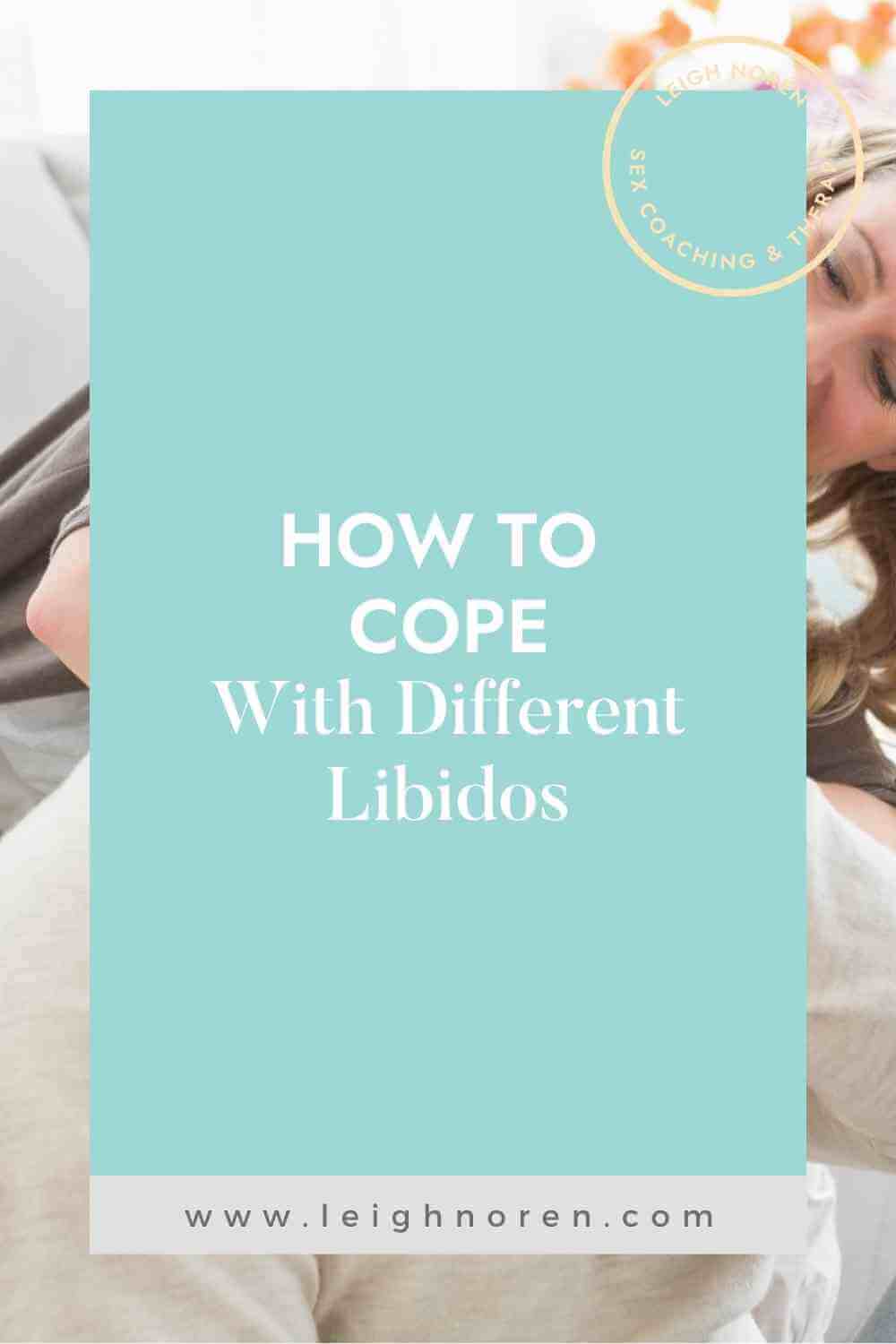Why Sexual Desire Is Strong At The Beginning Of Relationships
The beginnings of relationships are often thought of as the best. There’s lots of sex, talking, bonding, sharing, and staring into each other’s eyes. It’s a highly intoxicating period of time that is nothing short of magical when we’re in the thick of it – and its addictive nature seems to explain why sexual desire is strong at the beginning of relationships.
As our bond depends, these feelings of sexual passion, along with our libido, tend to weaken. For many, this can be confusing: if you’re in love and truly love each other – why does desire wane?
And – more importantly, does your low libido mean your relationship is over?
As a clinical sexologist, these are questions I deal with on a day to day basis.
But my MSc in Sexology along with years of therapeutic experience has taught me that libido that weakens over time doesn’t have to be a warning sign.
It tells a different story: one where sexual desire can be reignited if lost – and increased if it’s low.
There really are ways how to rekindle sexual desire in a long-term relationship and one of them is beginning to understand why sexual desire is strong at the onset of your relationship. Because believing you’ve fallen out of love or you’re doomed because your desire has decreased is actually a bit of a myth about why couples stop having sex.
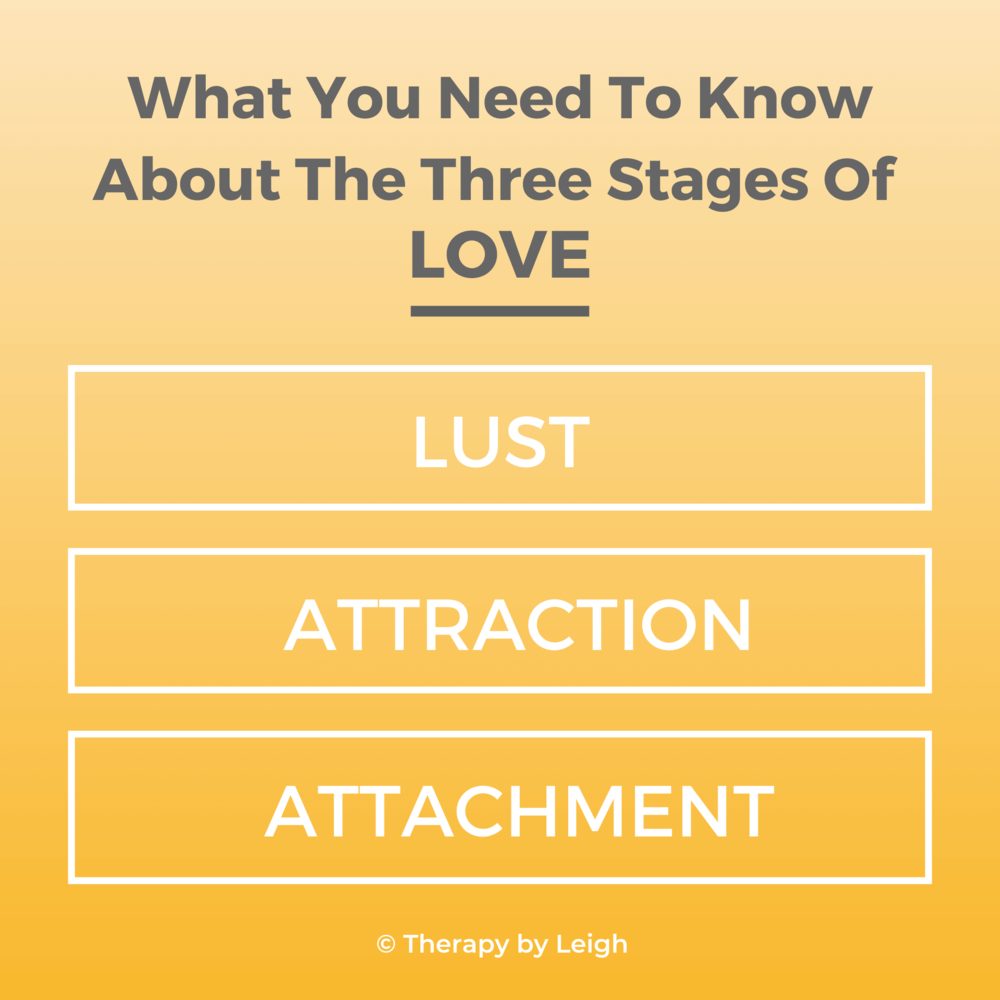
What You Need To Know About The Three Stages Of Love
According to anthropologist Helen Fisher, there are three stages of falling in love. Each stage is thought to be driven by specific hormones and neurochemical reactions in the brain.
The First Stage Of Love – Lust
Lust is the feeling of sexual desire and wanting to jump into bed with someone. This stage is characterized by the hormones testosterone and estrogen.
Testosterone is usually thought of as the driving hormone behind men’s libido. But testosterone actually increases sexual desire in all sexes. And it’s even believed to be more important to women’s desire – than men’s.
The Second Stage Of Love – Attraction
Feelings of attraction are located in the reward centre of the brain. It’s thought that this explains why the beginnings of relationships make us feel drunk with love and infatuation – because we’re constantly being rewarded.
The attraction stage of love is governed by dopamine, norepinephrine, and serotonin.
Dopamine is released in the brain when we do things that feel good to us. One of these things – is having sex.
Both dopamine and norepinephrine can make us feel sort of high. When they’re released we feel euphoric and energetic.
Simple things like eating and sleeping can suddenly become difficult.
It is at this stage we also experience a reduction in serotonin, which is a hormone that regulates things like mood and appetite.
Interestingly, those who suffer from obsessive-compulsive disorder (OCD) have lower levels of serotonin. This has led scientists to discuss whether the obsession in the attraction phase of relationships, is caused by lower levels of serotonin.
For a lucky few, these two beginning stages, lust and attraction, never end – even if we reach the third stage. And this is why sexual passion and sexual desire is strong throughout their relationship.
However more commonly, lust and attraction last anywhere from six months to two and a half years, leading us into the third and final stage of love: attachment.
The Third Stage Of Love – Attachment
The hormones responsible for this third and final stage, are oxytocin and vasopressin.
Oxytocin is released during sex – often after orgasm. It’s nicknamed “the bonding hormone” or “the cuddle hormone” because it’s believed to strengthen our attachment to one another when released. Cuddling after sex can even further reinforce this attachment and our satisfaction with our relationship.
It’s apparent that this last and final stage isn’t so much about sexual attraction or sexual passion, but about the deepening of an emotional bond. This partly explains why sexual desire is strong at the beginning of relationships and weaker the further we get into them.
While the three stages of love are relevant and interesting – as a sex therapist, I’ve found in my own work that the two first stages: lust and attraction, aren’t so easily disentangled from one another.
Oftentimes, attraction seems to be a precursor to sexual desire, as opposed to Helen Fisher’s theory, that sexual desire leads to attraction. You meet someone who you pulls you in because of the way they look, or smell, or act, and that becomes a catalyst for wanting to have sex with them.
Even if sexual desire is, in part, ruled by hormones and neurochemical transmitters – this isn’t the whole story (which is a good thing as it means you can get your sex drive back, even if it’s been lost for some time!).
WANT YOUR SEX DRIVE BACK?
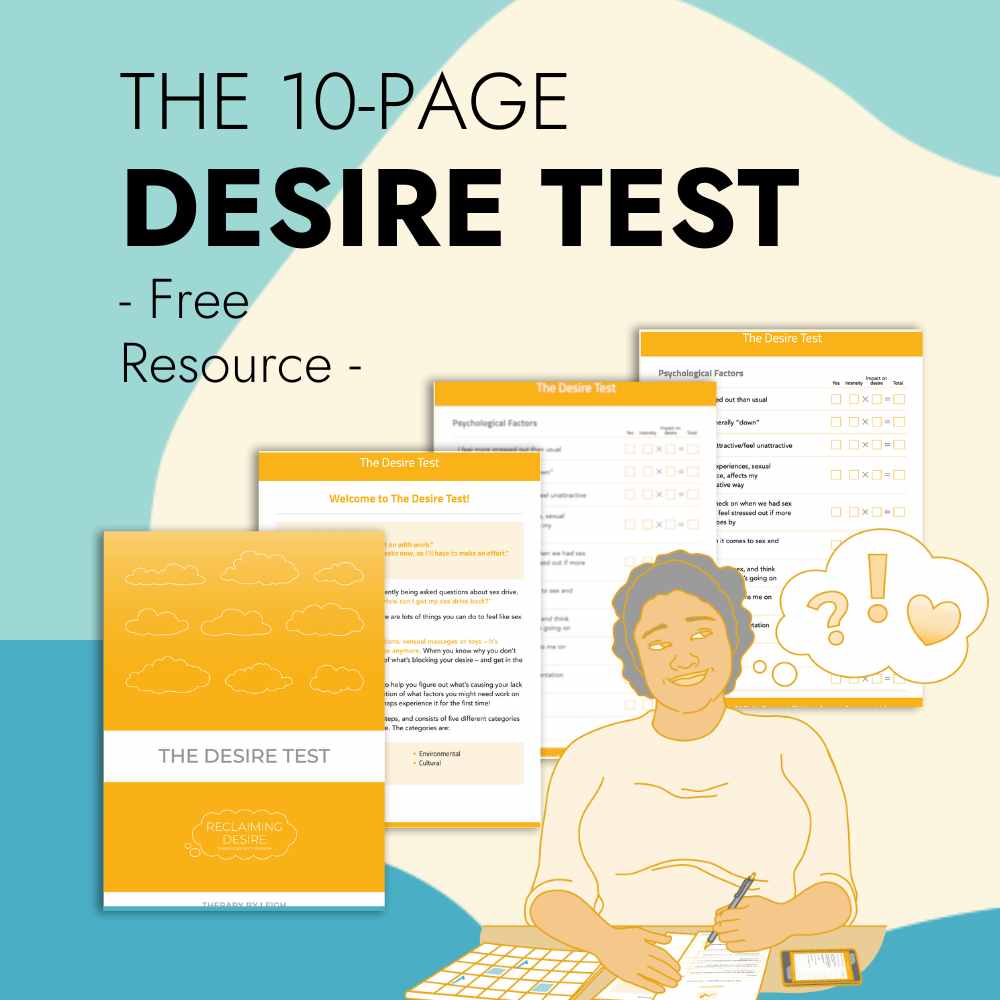
My free resource The Desire Test helps you take that first step towards an increased sex drive, by understanding your decreased desire.
Take the 10-page assessment quiz, get the answers you need to understand what’s standing in the way of your desire, and get free sex and relationship tips directly to your inbox. You can unsubscribe at any time.
Activities and Actions Also Explain Why Sexual Desire Is Strong
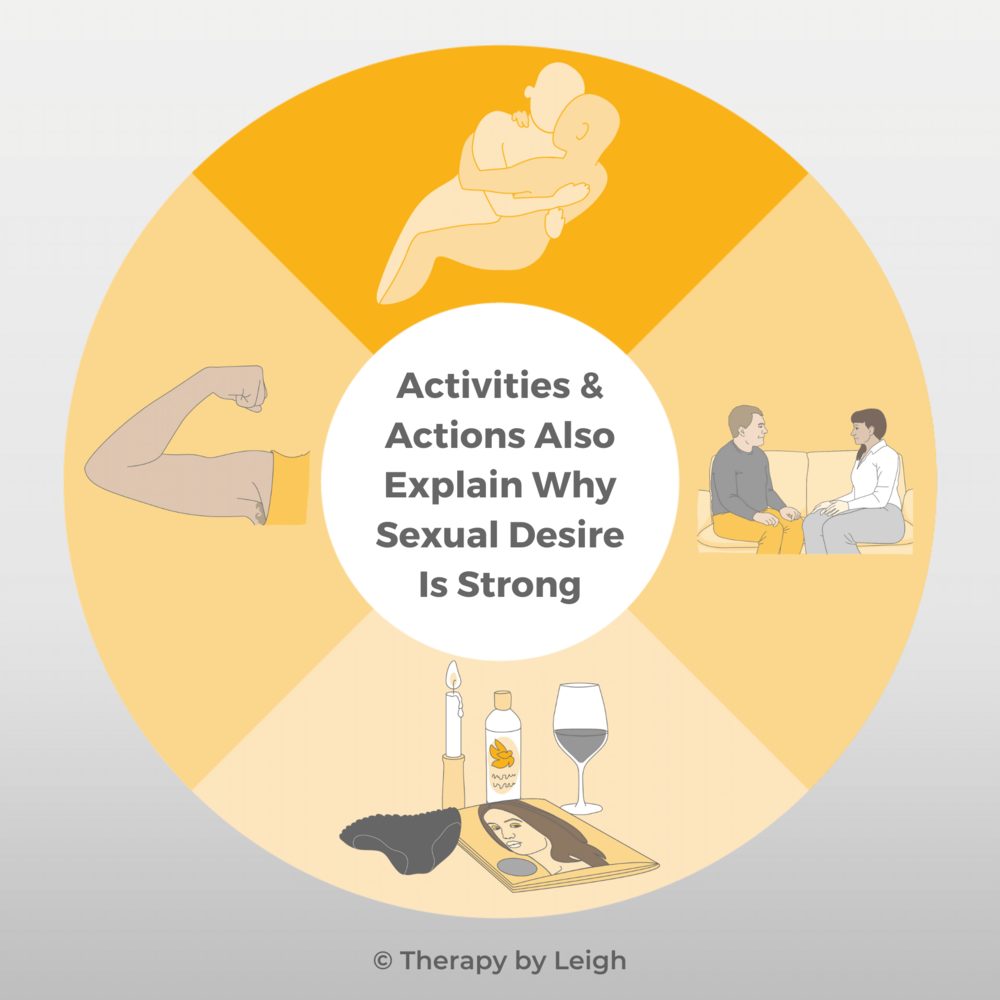
Sexual desire is also a consequence of our thoughts and actions – and this is why sex therapy is often a solution to low libido as it helps you work through your behaviours and thought patterns.
This is also why libido is at an all-time high at the beginning stages of relationships.
You see, early relationships are all about activities and actions that prime us for sex.
-
We work at our appearance, perhaps making sure to go to the gym, carefully picking out our outfit, and doing our hair. This makes us feel attractive to ourselves – and attracts our new partner.
-
We give each other our undivided attention – no scrolling through our Instagram feeds during dinner or texting with friends during strolls in the park.
-
We go on dates and try to come up with our best, funniest anecdotes to woo the other into wanting to be with us – creating sexual energy.
-
We spend hours and hours just talking – getting to know one another. We’re eager to hear our partner’s opinion on everything, want to know what they’re thinking, and want to know how they’re feeling. Interest in the other sparks their desire, as well as our own.
-
We talk about our upbringings, families, friends, jobs, passions, and hobbies – we fill each other in on our lives and what has made us who we are today.
-
And – not to forget – we’re in constant physical contact; touching, stroking, hugging, and holding one another.
All of this is potent because it often leads to a desire to have sex and lose ourselves in the throes of sexual passion.
We’re not just flung into sexual desire, but rather, work towards it, without even noticing it’s “work” – because the work is all about being with one another and creating positive interactions.
The work makes us simultaneously feel desirable and desire the other – and this is important to experiencing sexual desire and feeling like we want to have sex.
You Can Get Your Sexual Desire Back
Sexual desire is like an impressionable teenager – it can be pushed in different directions.
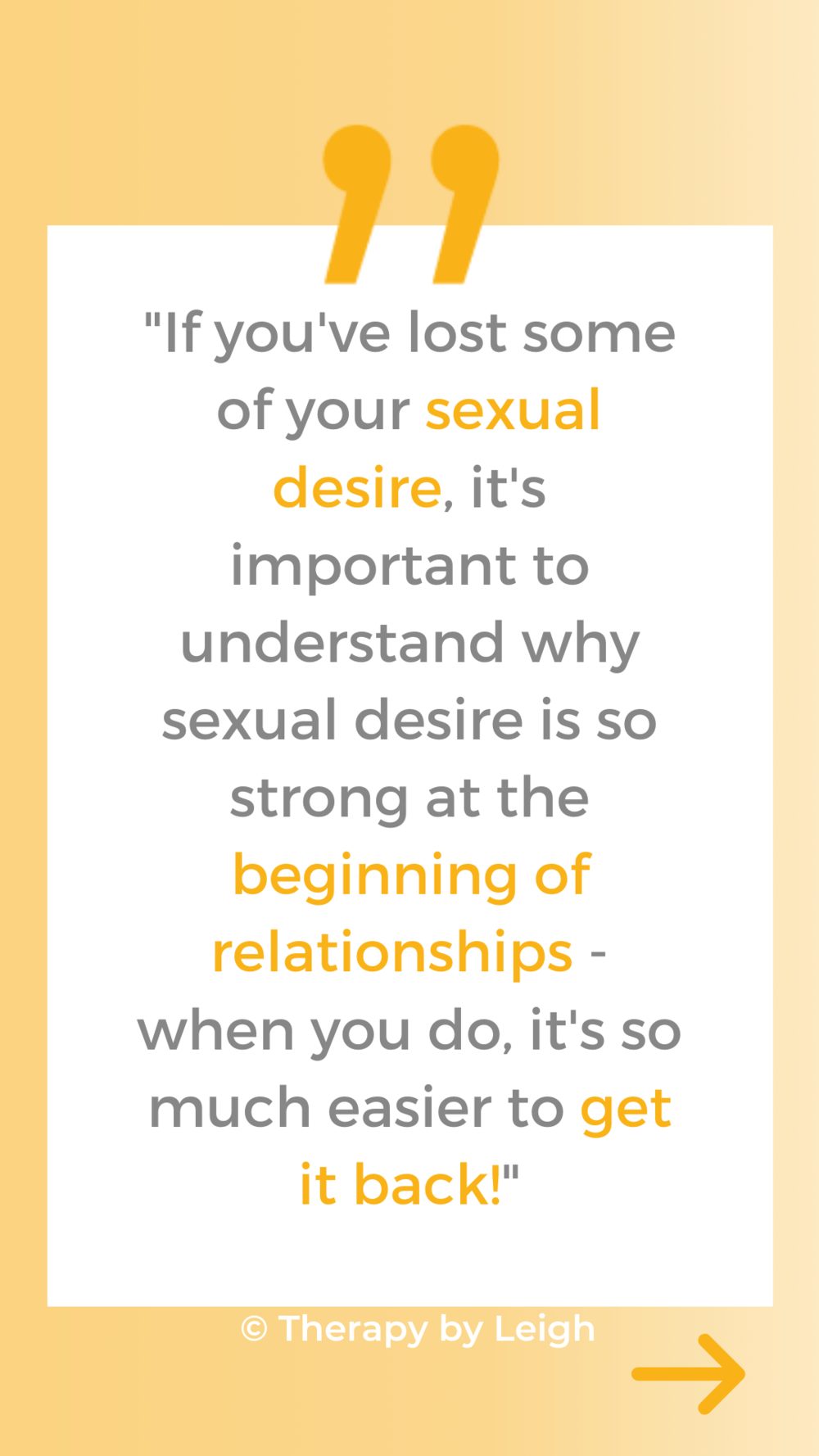
If we want to get our sex drive going again, we can. The trick is, in part, understanding what made it so strong in the first place.
Because the hormones secreted in our bodies differ, depending on which phase of our relationship we’re in, the three stages of love offer an understanding of why libido may decrease with time.
However, by understanding that sexual desire isn’t just a question of hormones – but rather a highly complex phenomenon that also consists of and is affected by things like thoughts and actions – we can regain our libido. Turning our relationship from humdrum sparks-a-flying and true sexual passion again.
Why sexual desire is strong at the beginning of relationships shouldn’t be a mystery – because when it isn’t – it’s so much easier to get it back.

Zero sex drive?
You’re not alone! Download the 10-page Desire Test to find out why your desire for sex is gone (and what to do about it).
Questions based on a variety of factors proven to negatively affect desire
Find out which factors are responsible for your low or non-existent sex drive
Get instant access to expert advice, delivered directly to your inbox when you download The Desire Test. Unsubscribe anytime.
WANT TO KNOW MORE ABOUT THE DESIRE TEST?
With 9 years of experience as a sex therapist and coach - Leigh helps her clients create stress-free, shame-free, pressure-free sex lives, through her unique combination of sexological science, & psychotherapeutic & coaching tools.
OTHER POSTS YOU MIGHT ENJOY
Copyright © 2019-2026 Leigh Norén. All Rights Reserved. | Website by Pinegate Road
Cookie policy | Terms & Conditions | Privacy Policy

